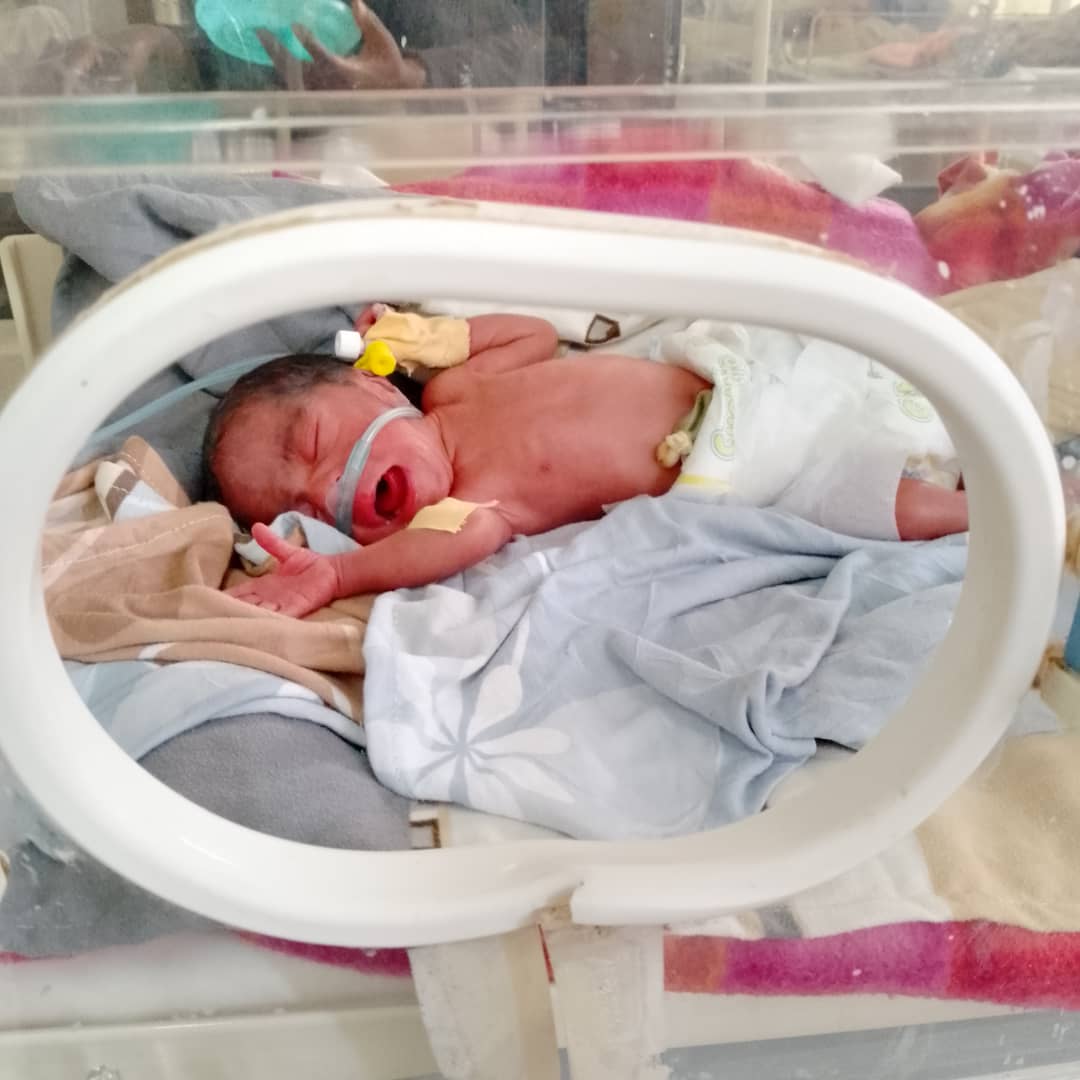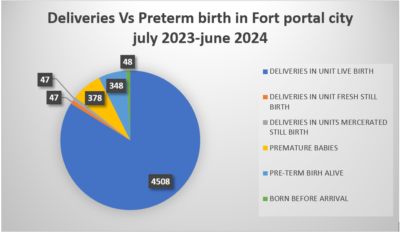
Against all Odds: One mother’s journey through prematurity.
By: Betty Mujungu
“The most challenging part of caring for my premature baby was that he couldn’t suckle since his jaws were weak, so the feeding tube was a roller coaster. Sometimes it would choke him, other times it would stray from the stomach to the lungs, causing milk to regurgitate back through his nostrils. That meant he had to stop breathing for a few seconds. It was scary and life-threatening. The second challenge was that he would sometimes forget to breathe and suffocate. I think this was due to the PDA, a small hole in his heart, which is common in premature babies. Lastly, his tiny size, just 1kg at birth meant I couldn’t carry him with ease. I had to be careful with every movement.”
These words from 26-year-old Kengonzi Anita echo the harsh reality of caring for a premature infant. Anita’s experience reflects the profound challenges that many mothers face when their babies are born too soon.
A Journey Full of Uncertainty
Her journey began when she was 23 weeks pregnant. “I slipped and fell, but I didn’t take it seriously at first. Then I started bleeding. When I reached the hospital, I was told I was miscarrying. They diagnosed me with placenta Previa grade two (a condition that occurs during pregnancy when the placenta is positioned low in the uterus, partially covering or being near the cervix) and advised bed rest.” But things didn’t get better. Four weeks later, at 27 weeks, her membranes ruptured, and her doctors were left with little choice, Anita either had to undergo a cesarean section or wait for contractions to begin. When contractions finally started, they were slow and prolonged, lasting two more days before she gave birth to her son naturally on the third day. He weighed 1.2kg at birth, a frighteningly small size for any newborn. “At one point, he even dropped to 0.8kg in the NICU. It was a constant battle just to keep him fed and healthy.” Anita re-counted.
Annita’s story is one of vast courage, but also of the overwhelming fear that so often comes with the premature birth of a child. “I felt mixed emotions, I was happy to have my baby, but I was also terrified I might lose him at any moment.” She said.
 Anita with her baby at the hospital
Anita with her baby at the hospital
Advice to Other Mothers in the Struggle
she advises other mothers going through the same struggle: “Take heart and trust the process. Be courageous during the emotional breakdown moments of uncertainty. Follow the doctor’s guidelines, and above all, let God’s will be done. There’s a reason for everything, even the hardships.” Anita said.
The fight for her son’s survival was long, but Anita found strength in several places. “I balanced my emotional well-being with the demands of caring for my preterm baby by keeping calm, no matter how overwhelming it felt,” she shares. “And I trusted in God, believing for the best. Sometimes, though, I had to accept that His will was more important than my own wishes.” One of the biggest factors that kept her going was the support system she had in place. “The father of my son was incredibly supportive. My family and friends were always there for me, providing love and comfort. That made all the difference.” She said.
 Anita’s son at 1 year and 5months.
Anita’s son at 1 year and 5months.
Specialized Care in Fort Portal for Premature Babies
Annet Kabahenda, the In-Charge of Child and Maternal Health in Fort Portal City, said as a city they are aware about the high rate of preterm births both at local and national level, and the city’s approach to prematurity is a practical one, with healthcare facilities that specialize in handling premature births, Virika Hospital, Bukuku Health Centre IV, and Fort Portal Regional Referral Hospital, with the regional referral hospital being the most active in providing comprehensive care, including pediatricians, Neonatal Intensive Care Unit-NICU nurses, incubators, and a wide range of other services. ‘‘These facilities provide specialized care for premature babies, and the services are free and easily accessible’’
she said the city’s maternal health programs focus on prevention, early detection, and intervention. “We start early with antenatal care where mothers are counseled on the importance of proper nutrition during pregnancy, the benefits of breastfeeding, and how to manage any potential complications.” After the baby is born, the support continues. “The involvement of doctors, midwives, pediatricians, and family members is crucial,” she says. “We believe in a holistic approach that supports both the physical and emotional well-being of mothers and their babies.”
Collaborative Efforts to Improve Maternal and Newborn Health
She added that the city works closely with the Ministry of Health (MOH) and other partners to improve antenatal care access and reduce maternal and newborn morbidity and mortality. “We’ve increased antenatal care visits from four to eight to ensure better monitoring and support for pregnant women, these visits are available at all the health facilities offering antenatal care.” Kabahenda said.
‘‘In addition to counseling about pregnancy and nutrition, we have introduced initiatives to reduce preterm births and other complications. We are doing community awareness campaigns using Village Health Teams (VHTs), and efforts to improve access to healthcare by upgrading health center 11s to heath center 3 are all part of this strategy’’ she said.
Dr. Asiimwe Solomon the City health officer Fort portal said they are working in line with the broader effort to improve maternal and newborn health in Uganda. Hospitals and health professionals have worked together to enhance neonatal intensive care units (NICUs) and improve medical practices. ‘‘The many success stories of women like Anita highlight the importance of more community engagement and collaboration between various stakeholders like government and all other health organizations to create sustainable solutions for maternal and newborn health’’ he said.
According to Dr. Asiimwe, Fort portal city recorded 4950 deliveries in health units in the period of July 2023 to June 2024, out of these 4508 were live births, 47 were fresh still birth, 47 were macerated still birth, 378 were premature babies, 348 were premature birth alive and 48 were born before arrival.



